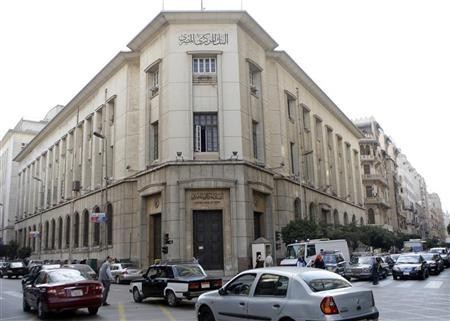Alaa Farouk, Chairperson of the Agricultural Bank of Egypt (ABE), has announced that the bank’s Bab Rizk programme for microfinance will be available in 150 of the bank’s new branches.
These will be added to the 26 branches where the programme has already been made available as part of the trial phase. This brings the number of branches where this programme is available to 176, distributed across Egypt.
Farouk explained that the Bab Rizk programme is the latest financing provision recently launched by the bank to support and finance micro enterprises. It is mainly aimed at empowering rural women and those who are their family’s breadwinners, as well as youth, in Egyptian villages.
The programme aims to help the target beneficiaries with their businesses, while generating jobs for young people. This is expected to take place in a way that supports the state’s efforts to achieve financial inclusion, and enhances the capabilities of young people in maximising the benefits they receive from the banking services.
He pointed out that the bank is organising a number of awareness activities and public gatherings in the villages in which the Bab Rizk programme will be launched.
This comes with the aim of introducing the beneficiaries to the new product and its importance in supporting micro-enterprises, as well as its role in promoting rural development and the national economy.
He added that the new branches were chosen with great care, based on nationwide studies. This also took into account studies of the villages included in the first phase of the presidential initiative to develop Egypt’s countryside.
According to Farouk, the governorates of Beheira, Sohag, Qena, and Minya saw the highest number of branches nominated for where the programme will be launched.
The number of branches where the programme will be launched in Beheira governorate is 26, while it will be launched at 19 branches in Sohag, 25 each in Qena and Minya, and 11 in Menoufiya.
The number of branches in Beni Suef and Aswan is 10, nine in Gharbeya, eight in Assiut, six in Daqahleya, and five each in Kafr El-Sheikh, Luxor, Sharqeya and Qaliubiya. This is in addition to four in Damietta and Giza, three in Alexandria, and one each in New Valley and Port Said.
Farouk stressed that the Bab Rizq programme’s aim is to support micro enterprises, whether existing projects or new ones. It aims to create a new source of livelihood for villagers and help them increase their income to improve the quality of their lives and provide jobs in rural areas.
He explained that the programme provides facilitated financing of EGP 2,000-10,000 with a diminishing annual interest and simple banking procedures and facilities.
Clients can obtain loans by simply using their IDs and bills. The bank also provides other facilitations while obtaining a loan. These include the free issuance of ABE Meza cards, to enable clients to use them in their payments and for all their future banking transactions. They can also use these cards to pay the instalments of their loans.
He added that the programme primarily benefits rural women in general, but particularly women who are the breadwinners in their families, to empower them economically.
The programme supports women in launching their own businesses in the fields of raising poultry and domestic animals or traditional household industries, such as food, dairy products, simple handicrafts and trade.
Farouk explained that all facilities have been taken into consideration for those wishing to obtain financing. Clients can obtain the required amount without any bank charges, provided that the loan is approved as soon as possible.
Clients will also be given a grace period of two months from the date of the loan disbursement to help them start their businesses without any stress to make reasonable profits.




